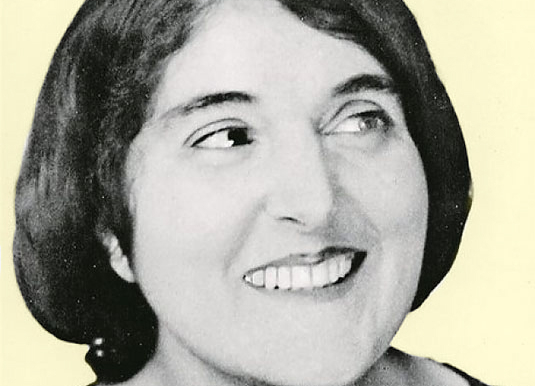
In the early years of their marriage and of Elias Canetti’s rise to literary renown, Elias and Veza Canetti each kept up an intimate and often secret correspondence with Elias’ younger brother Georges, a doctor then living in Paris. Here, Veza confides her worries over Elias’ mental state and her own feelings of entrapment in their marriage.
8/16
Dear Georg,
I can’t understand your silence in response to Canetti’s affectionate letters. It has caused him to have a psychotic episode. Unfortunately, I am not exaggerating. The actual gravity of this outbreak is the reason for this letter.
His previous big attack happened last summer with the failure of the film project. That time, he groped his way through the apartment with twitching eyelids. He was blind and said I was intending to kill him with a dagger. When he came to himself, he said the groping had been the wish to find an exit, fleeing from me because I wanted to stab him!
Last night he was fantasizing about a woman you were alienating from him, whom you intended to marry against your mother’s last wishes. I began to doubt the complete truthfulness of his statements when he said that I was a great beauty but an evil person. Since grief has ravaged my features, I didn’t take the second part of his assertion to heart, either. What I do take to heart is his attack.
As for my life with him, I would not call it being caught between Scylla and Charybdis, but rather fluctuating between madness and suicide. The constant allowances I make for his quirks and propensities demand a degree of self-control that puts my own health at risk. My despair at the prospect of him suffering Hölderlin’s fate points to suicide as my only escape. When he is off on a trip, I gradually rediscover myself. I open up and begin to shine. I am seized with yearning for an unencumbered life of health and freedom. I would like to leave—leave him. When he returns, I’m so overcome with compassion and stand in such awe of his genius and his boundless goodness that I lapse back into my old habits.
I’m writing all this so that you will help me. I would like to tell you everything about him and then perhaps you as a doctor will know a solution. He says you are one of the most erudite men alive and he writes only about you. If you knew a possible way to avert this terrible disaster, he would cooperate himself, for he is aware of his condition.
When he wrote me about you in the summer and I heard your voice, I felt a great longing for you. I was repeatedly seized by the passionate desire to write you and call you up. I did not do it. But I am writing you now. You must come in October, or whenever you are able. Fearfully, he insisted that you would not be coming. And because I almost fear it myself when I see your indifference to his love, I’m writing you now. I beg you to tear up this letter at once. No document that gives access to Canetti’s inmost being must be allowed to survive.
I don’t pretend to be a saint, because I’m not one by any means. I am too tortured, too bad-tempered. Again and again, I struggle against all his weaknesses—noble weaknesses he simply cannot afford to have because he’s poor in pocket and strength. Again and again, I’ve tormented him about all his weaknesses. Of course, it’s our former dire straits that have made me so hard.
I’m asking you please to answer his letters at once. Please confirm receipt of this letter by adding in a footnote “Cordial greetings to Veza.” You cannot write me directly until after Sept. 5, when we’ll be back in Vienna, where I handle the mail. But there’s little point. I need a doctor here, one who is extraordinarily smart and can work wonders.
Veza.
From “Dearest Georg”: Love, Literature, and Power in Dark Times: The Letters of Elias, Veza, and Georges Canetti, 1933-1948. Edited by Karen Lauer and Kristian Wachinger. Translated by David Dollenmayer. Other Press, 2009. 436 pp.
FURTHER READING
To read a review of The Tortoises, Veza Canetti’s semi-autobiographical novel of 1939, click here.
To learn more about Elias Canetti’s complicated life, click here for Clive James’ 2005 essay “Canetti, Man of Mystery.”


